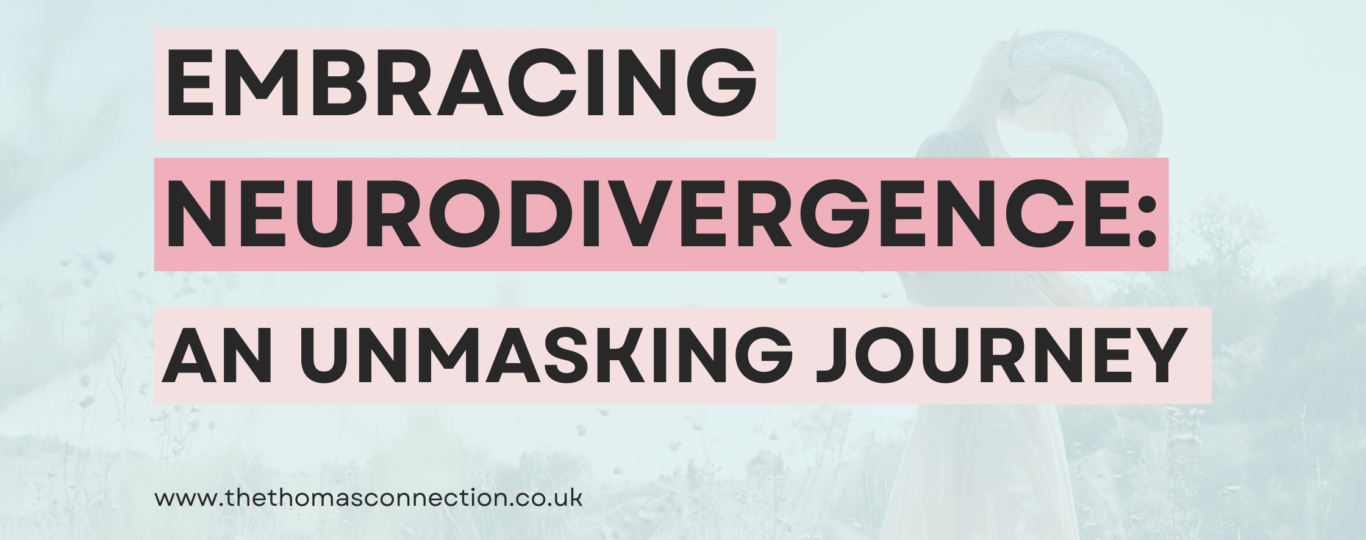I want to share something very personal, something that I have never disclosed before now. This piece of my journey significantly shapes my teachings, making them more tangible and grounded in reality. In doing so, I hope that many of you will feel seen, resonating with my experiences of self-worth, self-compassion, and neurodivergence.
The Journey Towards Self-Compassion
One Sunday morning at my yoga practice, I picked up a card. It simply read, “I am worthy.” That message became my intention, my focus for that practice. It was a message I needed to hear, as I was feeling low, having taken a few knocks professionally. I’ve been contemplating what it means to feel worthy – worthy of self-care, worthy of compassion, worthy of giving and receiving.
The Metaphor of Growth
My evolution of growth reminds me of the metaphor of a snake shedding its skin. It’s a process of uncomfortable change that ultimately leads to a liberating transformation. The snake’s old, dry skin no longer fits, and once it’s shed, the snake emerges with vibrant colours, renewed and grown. This process is akin to my own journey of self-growth and acceptance.
Contemplating the Many ‘Maybes’
Perhaps it’s my impending 40th birthday that has prompted these introspective reflections, or maybe it’s the recent diagnosis of ADHD, making me consider my tendencies towards perfectionism and burnout. Other factors come into play too; coming to the end of my chapter of having babies, the early stages of perimenopause, and a recent diagnosis of premenstrual dysphoric disorder (PMDD). Regardless of the exact causes, what is clear is that I am evolving, contemplating, and most importantly, still worthy of self-care and self-compassion.
The Stance of Compassion
It’s important to remember that it’s not your fault if your brain is wired differently. You are not to blame for the ways in which your brain can make your life challenging. Even when your inner critic is harsh and persistent, you are still deserving of compassion, always. This is the compassionate perspective – your hardships and the way your brain functions are not your fault, and you are worthy of compassion for it.
Embracing the ADHD Diagnosis
Receiving an ADHD diagnosis can be difficult. There can be periods of grief, feelings of shame, and a process of re-evaluating your life. Yet, there is also an odd sense of liberation in the unmasking process. Letting go of a lifelong mask allows for authenticity and the possibility of finding true acceptance in others and in oneself.
Forming a Focus Group
This has led me to seek out a focus group of women who may have ADHD, who also struggle with perfectionism, or experience anxiety or overwhelming stress. If this resonates with you, I’d love to hear from you. By forming a focus group, I hope to better understand and assist women like you.
Anyone who joins this 90-minute focus group to discuss your needs as ADHDers with anxious, perfectionistic tendencies will also get a free 30-minute 1:1 session with me to work on ONE tangible thing you want to improve. So yes, I am giving away 5 hours of free coaching in exchange for your openness.
If you are interested, email me at info@thethomasconnection.co.uk and we will set up a poll to find a suitable date for you all.
Navigating Perfectionism, Burnout, and ADHD
I am not abandoning my niche of perfectionism for ADHD. Instead, I am intertwining them. I am aware of the link between perfectionism and not only anxiety, depression, stress, and burnout, but also ADHD and autism. It is very common for neurodivergent individuals to struggle with perfectionism and a lack of self-compassion.
Embracing Neurodivergence and High Intelligence
Another aspect of my neurodivergence is that I am gifted, which means I have a high learning potential and I score in the top 2% of the population in IQ. Being gifted is another form of neurodivergence, which may explain why my ADHD diagnosis came relatively late in life, at the age of 39.
Six Tips for Navigating Life with Suspected ADHD
1. Speak to a qualified professional about a possible diagnosis (if you wish).
2. Disclose your struggles to someone you trust in order to soften the shame.
3. Learn about ADHD to recognise patterns you might not have noticed before.
4. Join communities with other neurodivergent individuals to realise that you are not alone.
5. Consider applying for the Access to Work grant if you are struggling at work.
6. Finally, remember, it’s not your fault. Embrace your unique brain-wiring with compassion.
Navigating life with neurodivergence is not easy, but it’s crucial to remember that you are still worthy. This journey has been a vulnerable one for me, but it’s been worth it, and I hope it resonates with you as well. As always, please take care of yourself, because you are truly worthy of self-care and self-compassion.



